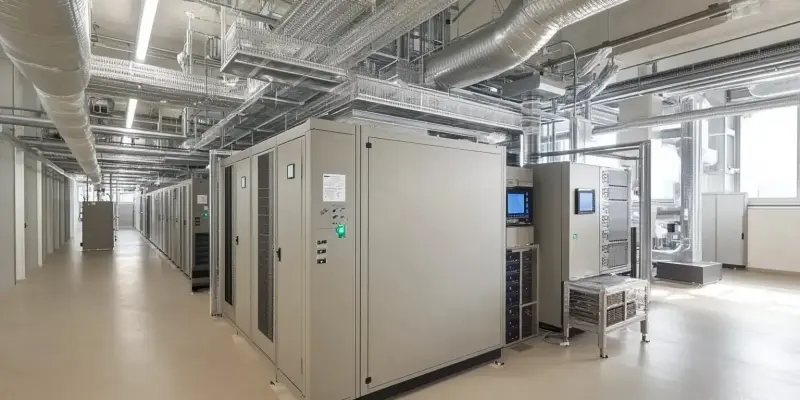New Zealand’s data center sector, currently experiencing rapid growth, has drawn significant investments from both local and international sources. With a substantial commitment of NZ$ 479.4 million for the construction of additional hyperscale facilities and an extra NZ$ 276.8 million expected over the next two years, the country’s data center operations are poised to double within the next five years. This aggressive expansion places New Zealand on a similar path as larger markets, such as Sydney. The sector’s projected revenue is anticipated to reach US$1.37 billion by 2025, with a Compound Annual Growth Rate (CAGR) of 5.23% pushing market volume to US$1.68 billion by 2029.
Investments and Renewable Energy
Significant Financial Commitments
The injection of capital from various sources is a clear indication of the confidence investors have in the New Zealand data center market. The considerable NZ$ 479.4 million pledge for building hyperscale facilities demonstrates the potential the country has to become a key player in the global data services industry. Furthermore, the anticipated NZ$ 276.8 million over the next two years will enhance this development, ensuring that New Zealand’s data center capacity will significantly increase in a short period. These investments not only boost the country’s position in the market but also create numerous job opportunities and stimulate the local economy.
Leveraging Renewable Energy
A distinctive feature of New Zealand’s approach to data center expansion is its commitment to sustainable practices, particularly the use of renewable energy sources such as geothermal and solar power. The emphasis on sustainability is becoming especially important as data centers are known for their high energy consumption. By fast-tracking the development of renewable projects, New Zealand aims to meet the burgeoning energy needs of its data centers in an environmentally responsible manner. This strategy not only helps reduce the carbon footprint of these facilities but also enhances their long-term viability by ensuring a steady and sustainable energy supply.
Challenges and Social Implications
Energy Consumption Concerns
Despite the optimistic growth forecast for New Zealand’s data center sector, it is accompanied by certain challenges that need to be addressed. One of the primary concerns is the substantial energy demand these facilities impose on the national power grid. As technologies like artificial intelligence continue to advance and become more prevalent, the energy requirements of data centers are expected to rise even further. This trend has raised concerns about the ability of New Zealand’s power network to sustain such an increase in demand without experiencing strains or adverse effects. To mitigate this risk, there are mounting calls for data companies to invest more in renewable energy infrastructure.
Indigenous Data Security
In addition to the technical challenges, there are social implications tied to the rapid growth of data centers in New Zealand. Among these, the concerns voiced by Māori groups regarding the ownership and security of indigenous data stand out. There is a growing emphasis on ensuring that the handling of such data is conducted in a manner that is both respectful and secure. This highlights a broader need within the industry to address data sovereignty issues and ensure that all community concerns are adequately addressed. Collaborative efforts involving stakeholders from various sectors will be essential in achieving a balance between growth, technological advancement, and social responsibility.
Conclusion
New Zealand’s data center industry is undergoing significant expansion, attracting major investments both domestically and internationally. With a robust investment of NZ$ 479.4 million dedicated to building new hyperscale facilities and an additional NZ$ 276.8 million anticipated to be injected over the next two years, the sector is expected to see a remarkable increase in data center operations, potentially doubling within the next five years. This rapid growth trajectory positions New Zealand similarly to larger markets like Sydney. Projections indicate that the sector’s revenue will likely hit US$1.37 billion by 2025. Additionally, with a Compound Annual Growth Rate (CAGR) of 5.23%, the market volume is forecasted to reach US$1.68 billion by 2029. The aggressive investment and expansion efforts firmly set New Zealand on a path to becoming a key player in the global data center market, reflecting its ambitious growth and increased market capabilities.

